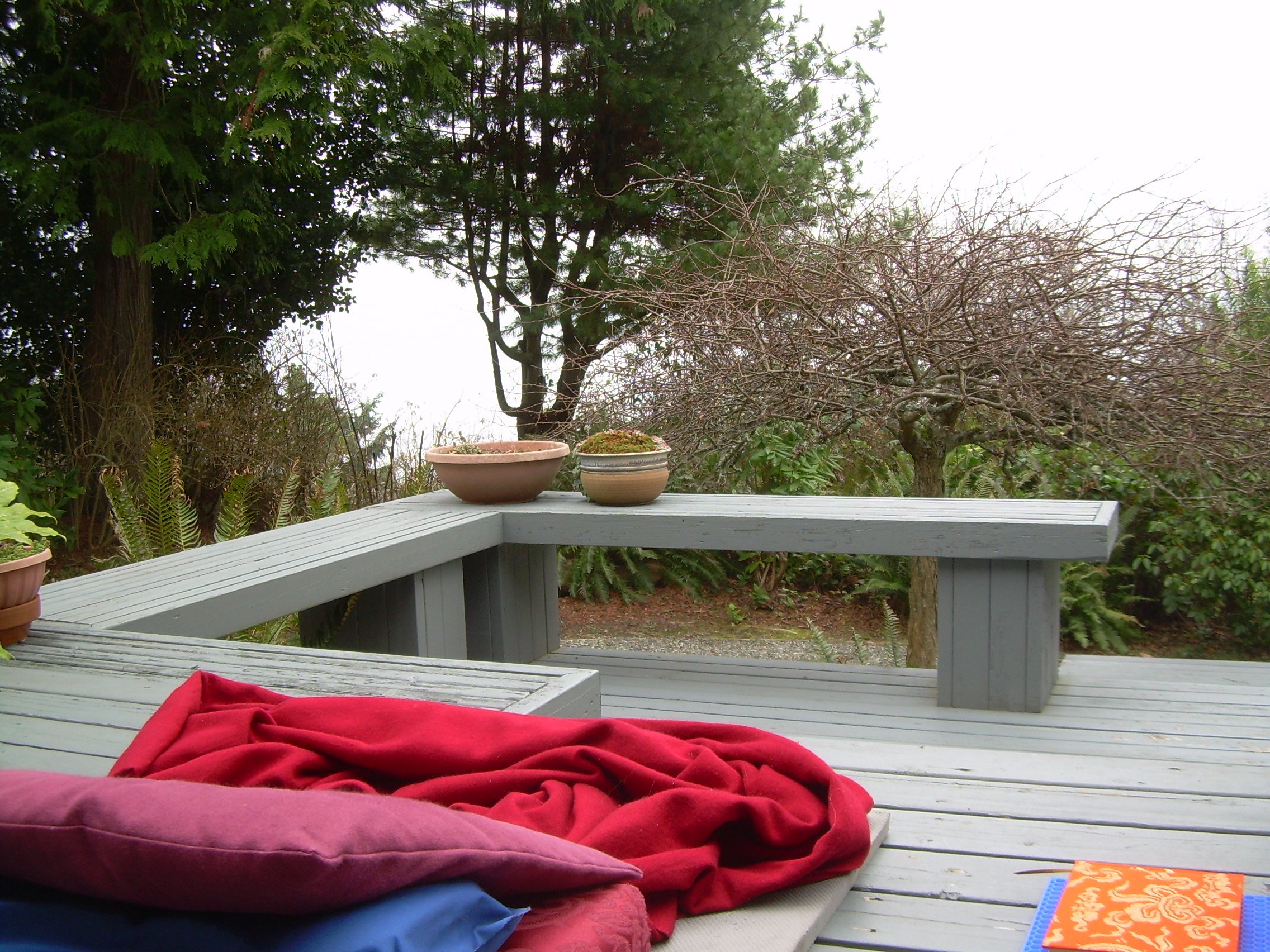Expressing Our True Nature
Excerpt from Small Boat, Vast Ocean
In the first year of retreat, in Raymond, Washington, a chiropractor surprised me by exclaiming with excitement, “You’re doing it! You’re doing the real thing!” An elder doctor in that same town was amazed at my youthful appearance for my age, attributing it to my spiritual path. He appeared deeply touched by hearing a little about my life—humanitarian work in Tibet and now Buddhist long retreat. He had devoted his whole life not to exotic, but to local humanitarian work—in severely underserved parts of Washington state—and I was, in turn, touched by that.
Then the other day, in the third year, I explained my life situation to my puzzled Bainbridge doctor as “extreme Buddhist retreat, like extreme sports.” I have no idea where in the far reaches of my mind that came from, but somehow the modern but absurd comparison seemed to satisfy her since the mystified look on her face instantly disappeared. A couple months before, to a Bainbridge chiropractor’s question, “So what’s the end goal?” (the end goal?!), I laughed and said, “Enlightenment, of course!” Then, trying to accommodate his sincerity, I added that I was taking the opportunity to delve into the diversity of practices offered by this “path of skillful means,” as Tibetan Buddhism is often described. It would have seemed offhand to brightly toss off the truth: It’s a journey without a goal.
Or it’s supposed to be. All our striving that races automatically to the fore—through our cultural genes, from family, and really as part of being human—is ever-present in the psyche, on retreat or not, standing as a thick wall between oneself and the Buddhist task at hand. One is strongly advised to drop all striving and expectation of outcomes. And yet, paradoxically even from within Buddhism, the goal of Enlightenment shines brightly, like a neon sign flashing outside your window at night, hard to ignore…while you’re also dealing with your thoughts and emotions, trying to develop equanimity and concentration—okay, let’s have more compassion—while trying to maintain just the right balance of discipline!
So really then, what’s it about, this endeavor that I’ve been involved in for twenty-five years, and completely immersed in for three? My favorite practice, from before retreat until now, has been meditation. “Resting in the nature of mind,” it’s called, in the dzogchen tradition. It’s akin to a zen style of extreme openness, awakeness, unfabricated, allowing but without following, looking at awareness itself. Then, not looking. Vivid. It’s beyond constraints such as watching the breath or focusing on an object. Non-meditation meditation. Potent, it’s said to be the direct way to Enlightenment. And yet, the desire for attainment, niggling quietly at the back of the mind…
In the third year of retreat I read Suzuki Roshi’s famous book, Zen Mind, Beginner’s Mind, which I found beautiful and helpful. In it he wrote:
Our way is not to sit to acquire something;
it is to express our true nature. That is our practice.
Thank you, I thought. This is what Kilung Rinpoche has been trying to get through to me, and is what’s stated bluntly over and over again in the writings of 14th-century Longchenpa. But by coming through a side door, from the Japanese Zen tradition, somehow the power of these simple words expressed “journey without goal” in a way that struck me with final authority. I printed it out and have looked at it every day since. Weight drains off, anxiety melts away, and I shed expectations that are part of the approval-disapproval, success-failure, hope-fear polarity.
It’s so simple. In all my meditations, all the hours of practice, in pouring water into offering bowls, lighting candles—in fact in all that I do—I’m just expressing my true nature. That’s all. That’s what I’m learning to do. On retreat. And I hope to continue to do. That is my practice.
Lastly, I offer this artifact, retreat advice from a western mystic.
You do not need to leave the house. Remain sitting at your table and listen. Do not even listen; simply wait. Do not even wait; be quite still and solitary. The world will freely offer itself to you to be unmasked; it has no choice; it will roll in ecstasy at your feet. —Franz Kafka
Essay sent with thanks to one helper,
written with her in mind in third year of retreat,
from Chapter 7: Bainbridge Island II
Copyright 2023 Diane Berger
Explaining Buddhist retreat to the outside world comes with challenges. Does one adopt the polite stance, the retreatant’s version of How are you? Fine, thank you…? Actually, for a three-year retreater there is no polite version. Once you let the cat out of the bag, the very idea of spending three and a half years away from society in religious retreat provokes automatic eyebrow raising of one kind or another. I heard one person, in explaining it to another, emphasize that my retreat and silence were self-imposed. I wondered if they were looking for the ankle bracelet. Especially in our time, instead of desert pole sitters, we have dessert pole dancers. People hardly know anymore why someone would choose to become a religious recluse, a silent hermit, devoting their life’s hours to meditation, contemplation, and prayer. It’s unimaginable—to most, but not to all.
